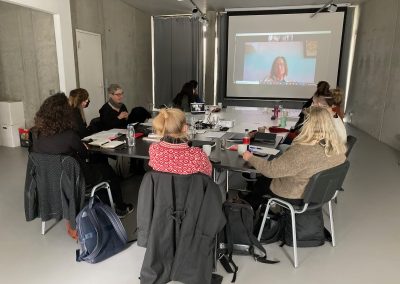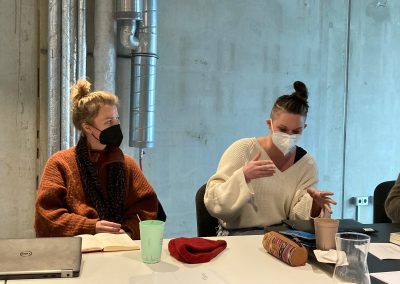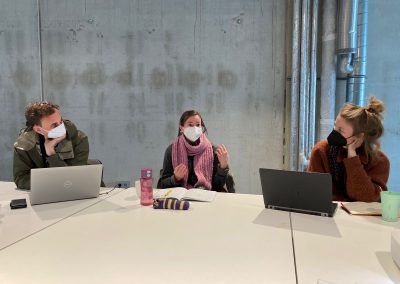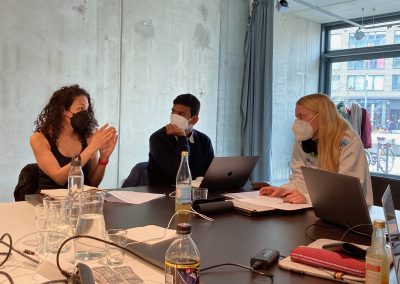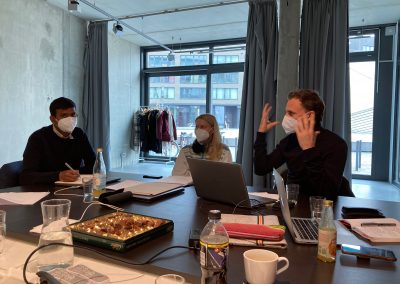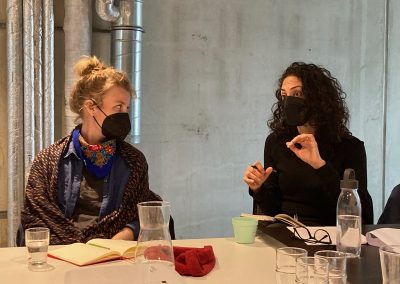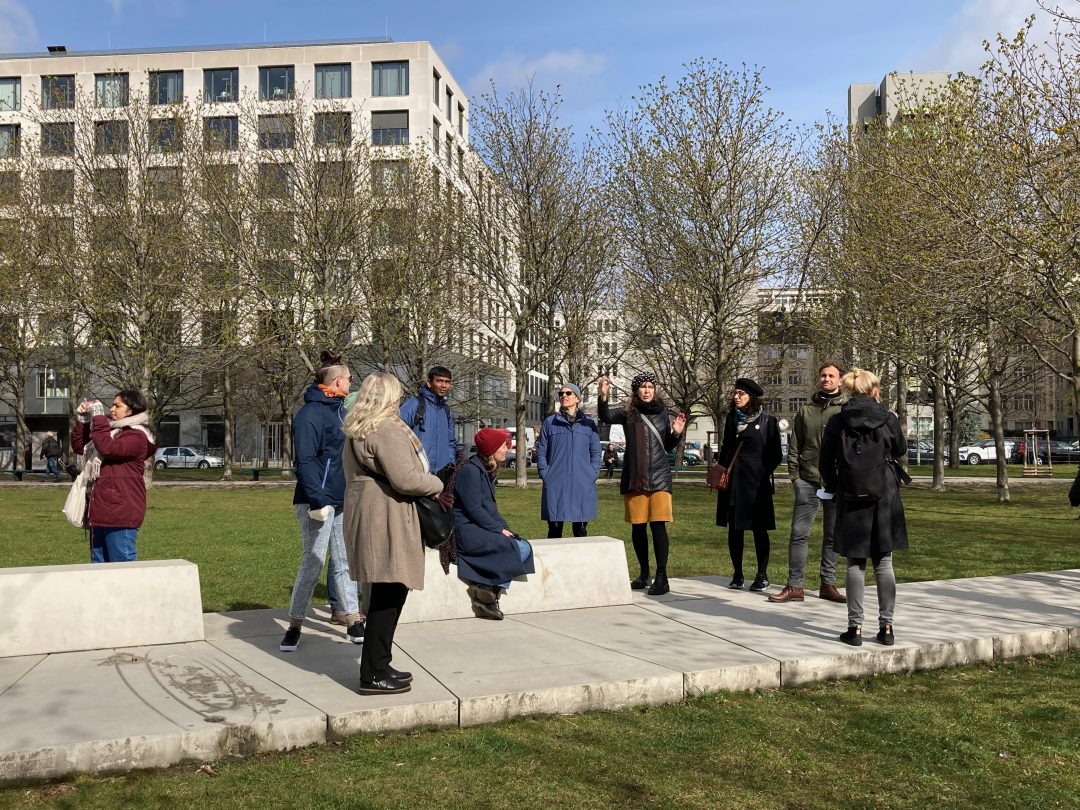
The PhD Criticality Course series offered by the Urban Futures Platform at the Swedish University of Agricultural Sciences since 2018 examines the phenomenon of critique, the place of criticism, and the role of critical thinking in developing sustainable urban environments. The course structure aims at developing PhD level critical research and writing skills, through close reading and guided interpretive discussions of a limited body of theoretical literature and intensive critical engagement with in-process student research. The course structure aims at developing PhD level critical research and writing skills, through close reading and guided interpretive discussions of a limited body of theoretical literature and intensive critical engagement with in-process student research.
The fourth iteration of the PhD Criticality course took place during spring 2022 in a hybrid format, including an in-person core seminar in feldfünf, Berlin. This year’s course participants had backgrounds in landscape architecture, architecture, environmental science, planning, participatory action research, urban design, and urban studies. Students from SLU Landscape got the opportunity to be taught together with students from several other European universities, namely the Oslo School of Architecture and Design, the Arctic University of Norway, KU Leuven, and the Hungarian University of Agriculture and Life Sciences.
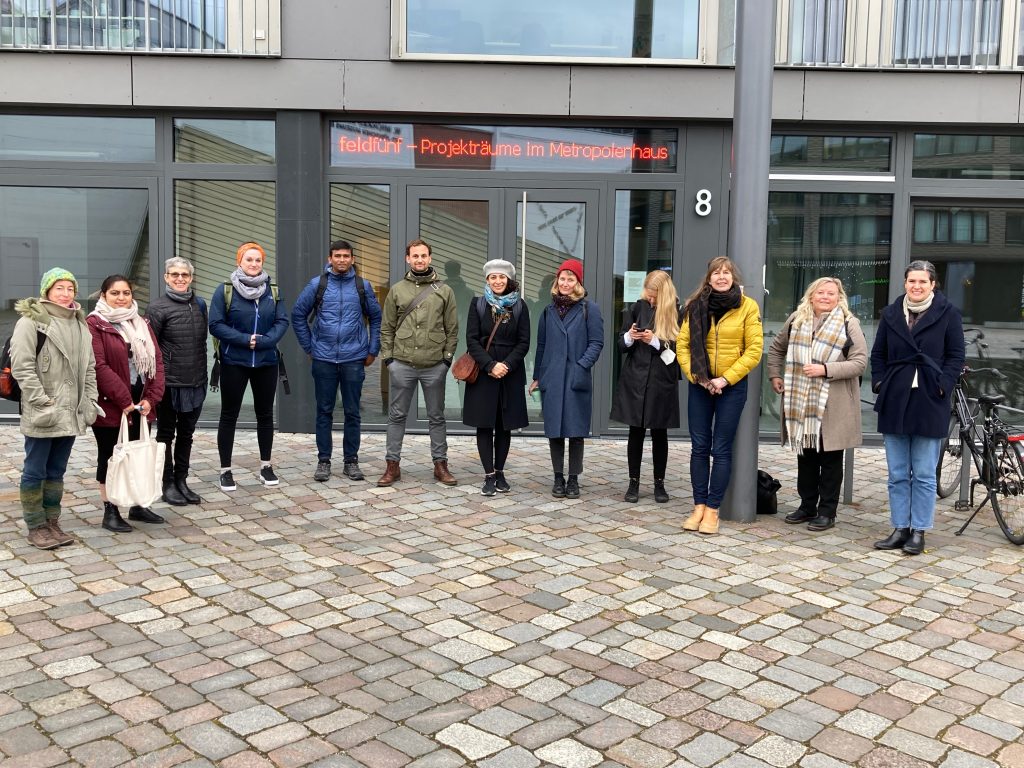
The core seminar included lectures by landscape scholar Prof. Thaisa Way (University of Washington), by architect and urban developer Benita Braun-Feldweg (bfstudio, Berlin) and by course leaders Prof. Dr. Lisa Diedrich and Prof. Andrea Kahn on critical theory and on criticality in professional publications. These theoretical considerations were completed by a study tour to critical urban interventions in the Kreuzberg neighbourhood by the SLU teaching team, including Dr. Sonia Curnier.
Besides these inputs from practice and theory, most seminar time was dedicated to engaging with texts on criticality and reflexivity. Participants also undertook a critical writing exercise in relation to their PhD research and gave feedback on each other’s works in progress. A very constructive and stimulating dialogue emerged from the encounter between these young researchers, as one of them stated: “The course helped me be braver in formulating my own intellectual position, and to practice giving feedback to others.” The course situated critical research as a collective endeavour, as one student perfectly summed up: “I am grateful and happy to have participated in this course. It enriched me personally and gave an idea of how discussions can contribute to moving forward in one’s own work”. And to collectively shape sustainable urban futures, one might want to add.
The Criticality course structure allows for an intensive exchange among the PhD students. They also engage with invited lecturers (Prof. Thaisa Way on screen) and with literature on critical theory and critical practice. Photos: Sonia Curnier Photo: Sonia Curnier
